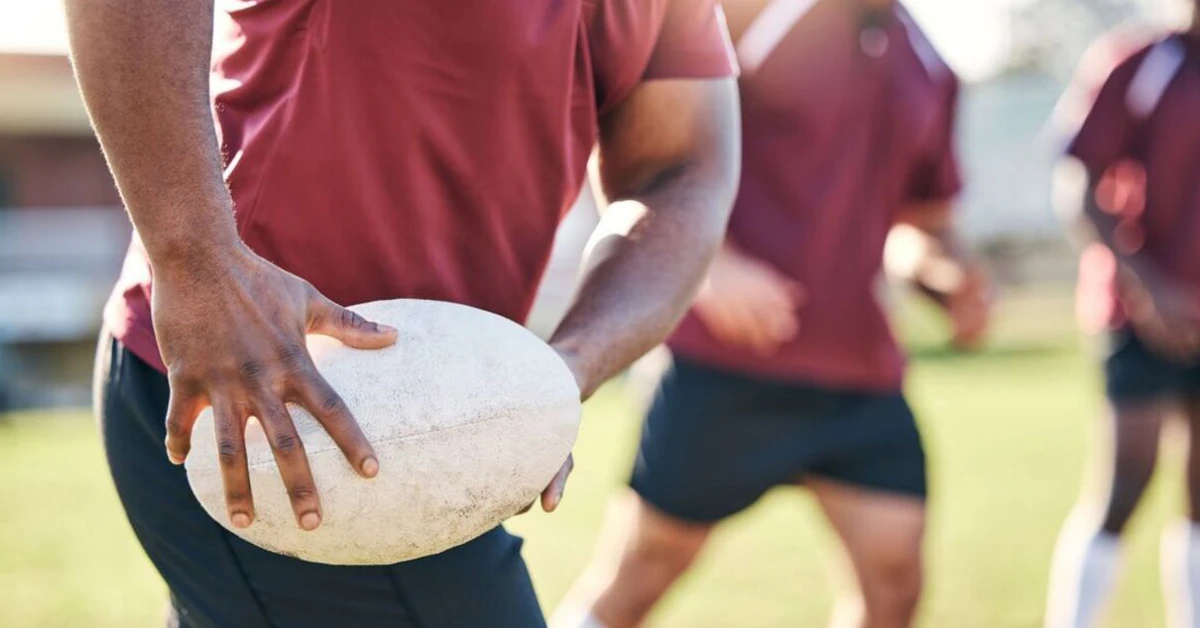“Hey friend, did you know that even though dementia isn’t popping up in rugby players in their 40s or 50s yet, researchers are seeing signs that wear-and-tear on the brain might catch up in the future?” That’s fresh research from this year’s latest round of brain scans—no early-onset dementia cases, but a few players showed elevated risk markers. Wild, right? Like that moment when you realize your tires are showing some wear, but it’s not flat… yet.
“But here’s the real messy part: science rarely delivers definitive answers. What it gives us? Clues.” Professor David Sharp from Imperial College London put it so clearly in discussions around brain trauma and risk. “Routine gameplay might look thrilling, but recognizing those clutch moments—those impacts—matters.”
Rugby Dementia Risk: What’s the Big Picture?
No data here says rugby will definitely cause long-term brain issues. But the studies from 2025, involving over 200 former players, builds onto a growing stack of evidence suggesting repetitive head trauma could increase sports-related dementia risk down the line—in rugby and in other contact sports like American football, football, and boxing. This article dives into what those recent findings say, what’s not a clear risk, and a few things every player and fan should understand.
Dementia Might Not Show Up Until Later
So, the big news? None of the 200 current or recently-retired elite rugby players showed any early signs of dementia during testing. Researchers went hardcore—they ran MRI scans, blood tests, and gave them cognitive puzzles to solve. But none of the players had dementia in their 30s or 40s.
Why’s that important? Because some previous research raised red flags about players developing early-brain diseases in their late 30s. Not here. “We would not usually expect signs of dementia in midlife, but we need to follow this group to clarify whether they might develop neurodegenerative issues,” said Professor David Sharp in his recent analysis.
Raw truth—the brain takes time to show its scars. Same way we don’t feel the weight of our choices ten years from now until they catch up.
No Dementia Found, But Biomarkers Raised Red Flags
Even though no signs of actual dementia showed up in the scan results, a few of the players had elevated levels of a protein called p-tau217—the kind linked to Alzheimer’s and chronic traumatic encephalopathy (CTE). Around 23% of the players had higher than normal biomarker activity, which might signal an increased rugby dementia risk over time.
If this were car maintenance, p-tau217 would be like your check engine light blinking once or twice. It’s not broken—but something’s off, and regular check-ups matter.
Head Injury Science ≠ Fault Finding
While scaring headlines fly, here’s what most media outlets hide: the 17.6% higher p-tau217 levels among rugby players still weren’t at Alzheimer’s patient thresholds. So, it’s not like players are on the fast lane for dementia—not by a long shot.
But—and here’s the but—those changes are on the periphery of what we expect. Repeated tackles, scrums, and intentional body-to-body blows might not be the direct dementia cause, but they’re being monitored closely because they carry long-term implications. This is how UCL’s team put it: “We’d expect biological changes to catch up in older age,” referring to their follow-up baseline report. Meaning: they’re not calling the TBI situation an emergency—but they’re not ignoring it either.
Brain Changes in Rugby Players
Some of the players had reduced brain volume in certain areas—namely the hippocampus (that’s your memory lane). The frontral regions where personality, behavior, and big-decision-making happen, were also shrinkier in scans if the careers were long.
What Does a Shrinking Hippocampus Mean?
This isn’t just lifted from glossy, emotionless medical jargon. Lower hippocampal volumes can mean lower recall and a struggle with forming stable memory. Now, they found reductions in this part of the brain—but not degeneration. The key difference? Players aren’t showing symptoms yet. Still, the data suggests that shortened brain volume might pile on the pressure over time, especially for players who logged more years on the field.
MRI Scans: Early Warnings, Not Red Alerts
In the MRI tests, only 4.6% had full-on trauma-related brain changes (based on diffusion tensor imaging). That’s promising—in the ‘my car’s mostly working’ kind of way. The rest showed no signs of pre-dementia activity.
Still—like a worn-out tire or frayed guitar string—if a great mass of brain abnormalities show up in combination with years of impacts, no one’s just going to call it ‘fine’ and move on. Scientists, like myself (yeah, I was a rugby forward for six years), are taking long-term brain stress seriously.
Brain Volume Drop? Career Length Matters
| Biomarker | Former Rugby Players | General Population |
|---|---|---|
| p-tau217 levels | ↑ 17.6% | Normal levels |
| Hippocampus volume | ↓ by career duration | No decline |
| Cavum septum pellucidum occurrence | 24% | 12% |
Head Injury Risk in Rugby: Playing Positions Matter
If you’re a back or a forward, the risk dynamics change a bit. Not surprising—those in positions where head-first impact is part of the playbook might get thwacked more often. Data from the research team shows players in front lines had more biomarkers, memory complaints, and higher neurobehavioral symptoms—with many fitting the “suggestive” pattern for CTE syndrome.
Does that mean backs are out of the woods? Not exactly. Shoulder bashes, disorientation hits, and tackling in short bursts still have risk potential. It’s not binary—black and white or position-specific—it’s about the accumulation of impacts over time, like chipping away at a statue rather than knocking out a tooth. Take that for a real, raw, emerging warning of rugby dementia risk borne from repeated exposure. As one study put it, “there is a 2.67x higher risk of neurologic disease among contact sport players compared to the general population.”
Forwards vs. Backs: Who Faces More Risk?
Roughly 63% of the players in the latest study were forwards, and 23% had elevated p-tau217 levels. Why forward roles show more red flags? More collisions, more repeat tackles, and more head impact. Hypothesis? Prolonged proximity to opposing players increases exposure to brain-stress signals.
How Concussion History Drives Risk
Of the group, 193 former players recalled having at least one diagnosed concussion in their careers—and many reported 7+ confirmed incidents. But even though they registered higher self-reported cognitive and mood symptoms, they didn’t differ from healthy controls on cognitive test scores like memory puzzles, verbal reasoning, or pattern recognition.
“Head impacts might have felt like playable basics,” one researcher noted. “But biological indicators don’t forget.”
Are Frequent Concussions a Direct Alzheimer’s Ticket?
No, because head injury plays a role—but so do other dementia risk factors like genetics, diet, and sleep. The rugby brain studies don’t say that one tackle knocks players into early dementia. They do say that rugby head injury exposure opens the door to possible increases.
Think of it like sun damage. One burn? Not fatal. But a deep history of UV exposure without protection—like repeated scrums without brain stress recovery—can add a quiet but measurable risk of long-term health.
Head Injury, Rugby, and the Football Study Comparison
If rugby keeps showing up red flags like frontal volume shrinkage and elevated blood protein, you may wonder: Is this sport different from others? Researchers are now comparing elite Rugby with data pulled from elite footballers, especially older white paper findings from Scotland’s “Big Football Study”—which found a 5x higher risk for Alzheimer’s disease death among professional footballers versus the broader population. Rugby? Knocked on wood at just about double the risk.
Should Rugby Fear Be Higher Than Football or Other Sports?
Not necessarily—it shows less risk than football in the hard numbers (based on older research suggested above), but rugby still grows those p-tau217 levels and volume loss in areas linked to cognitive behaviors.
In a way, it’s the same conversation we’ve started with football, NHL hockey, and mixed martial arts. Concussion long-term effects—you can’t just wipe them out by being the fastest or toughest player. Professor Sharp also reminds us: “We need to look beyond the league. The finding of increased blood biomarkers is our first signpost for the long road ahead.“
Striking a Balance: Sport’s Benefits vs Potential Brain Risk
Now, and I know this sounds strange for a brain-impairment article, but rugby’s a sport with real rewards. Fitness, mental resilience, and yeah—no small thing—a sense of belonging and purpose that builds brains differently than a sedentary lifestyle.
Experts from Alzheimer’s Research UK keep pointing out: physical exercise is one of the best buffer zones against dementia. Rugby, sprinting, cycling, weight-lifting—they’re all shown to reduce the risk of memory diseases when players keep safe techniques around head injury reduction, especially youth development years.
So, Should Rugby Players Just Hang Up Their Boots?
Hell no—even if you kind of just got that cuppa from your coach after an intense tackle, don’t be too quick to quit. The data doesn’t say rugby will doom your brain no matter how much you play.
What the research does say is: “Don’t skimp on safety protocols.” Our brains aren’t gadgets. You can’t just reboot after a hit. They are delicate, and like washing your phone in the sink, one slip can mess a lot up.
Physical activity is medicine. But it’s not a magic cure that cancels out potential rugby dementia risk. You have to play smart: support your body, monitor your head hits, and pay attention to how your brain adapts. A little caution today can preserve that sharp edge next Tuesday when you’re hitting passes at training.
What Do Rugby Players Really Experience? A Look Into Mental Health
Another curious angle researchers picked up: most former rugby players scored higher on self-reported tests for depression, anxiety, and things like sleep disturbance or pain—but not higher than those with treatable mental health issues without brain changes.
Could Head Trauma Be Mistaken for Depression?
Here’s something cool: the MRI and cognitive tests didn’t actually flag brain damage as the main cause behind their mood issues. So players might be attributing their brain fog or emotional shifts to head impact—but in many cases, the issue came from less intense sources like lifestyle or stress.
So: rugby head injury could contribute but isn’t confirmed to be the root cause in all cases. That’s what makes the Alzheimer’s Society so cautious in their assessments: causal links still need more work. Because emotional shifts and subjective memory loss aren’t always neurodegeneration—they may just be passing effects of lifestyle and fatigue. Beating that? It’s where mindfulness, meditation, and even tech tools like Fitbits tracking REM sleep help.
Neurobehavioral Changes: Rugby and the Mind-Brain Connection
24 of the 200 ex-players met the working criteria for CTE syndrome—based on their mood symptoms. And nine of them even linked their struggles to a “suggestive” pattern for CTE. But remember—same article called it a low-certainty finding. Maybe like that sports injury they think might hang on, but you don’t know until next season. So we don’t have a solid “rugby causes CTE” yet. It’s observational. That’s the frustrating nature of science sometimes—it moves slow, but it carries weight when it gets there.
CTE in Rugby: Why It Feels Like a Gray Area
There’s no clinical test yet for CTE. We only confirm it post-mortem via brain-tangle analysis. In “scraping the rust,” rugby studies few showed post-mortems like those in NFL—although rugby players have begun reporting behavioral issues that partially match.
So we’re not just watching the players—we’re watching their proteins (via p-tau217), brain volume, and emotional reports. CTE? Still living on the edge of data and deduction, so rugby researchers throw terms like, “possible neurodegenerative associations” to keep from overstating due to incomplete evidence.
What’s Next: Promoting Brain Health & Safer Rugby
Researchers like Dr. Neil Graham at UK Dementia Research Institute Universities are not just chilling next to the MRI machines, watching data roll in. They’re banding together, collaborating across international sports committees to refine profiles of who’s genetically prone to tau tangles, amyloid buildup, and irregular brain volume loss.
Adapting Play for a Brain-Forward Game
Like Appalachian hikers replace boots when they’re worn down, rugby’s starting to adopt more safety rules without making the game lame. Switching to safer tackling positions, reducing repeated scrum impact during youth training, taking time off after mild head knocks—these are shifting from “just suggestions” to crystal-clear protocols.
The 2023 led lawsuit against World Rugby, the Welsh Rugby Union, and Rugby Football Union showed public appetite—for player brain protection—is rising. Not exciting news for the rugby governing bodies, but it’s showing players that the league means business about player safety now. That’s a shift for the positive. Let’s see if procedures match declarations.
How Can Modern Players Keep Their Brain Sharp?
- Follow “if in doubt, sit out.” That old rule doesn’t make you soft—it makes you objective.
- Track repeat symptoms —headaches that linger, balance that’s off, memory gaps. These might not scream “dementia” at 40, but they’re signs at play.
- Why recovery counts Rest after matchdays? It’s not laziness; it’s neuro-protection from those accumulated kinks in brain function. Yeah, science just made your couch a safer place.
Should You Still Play Rugby? The Final Answer
Here’s the kicker: we don’t have the slightest idea whether a 23-year-old currently playing pro rugby will see dementia at 60. That’ll take time—and multiple follow-up studies in 2030 before science gives clear answers.
But since rugby brain news keeps rolling, a good personal game should include:
| Prevention Strategy | Why It’s Smart |
|---|---|
| Baseline brain assessments | If you can score your memory, mood, and structural images before impact and again later, you can track long-term changes accurately |
| Post-concussion rests | Short down periods after head knocks not only help immediate recovery but potentially protect long-term cognition |
| General brain health control | Sleep, hydration, nutrition, and mental health checks top up abilities that long head trauma might distress |
Rugby may still be your go-to—solely for the joy, the sweat, the camaraderie. But like driving a classic Jaguar, long-term care matters. And if you’ve finished reading this thinking, “Yep, I’m more cautious now,” and “I’m worth that extra precaution,” then this article did what it was meant to do.
Conclusion
Dementia may be less common in current and recently retired rugby players, but blood biomarkers like elevated p-tau217 and reductions in brain volume point to the long-term rugby dementia risk. Keep in mind those aren’t conclusive signs of disease just yet. If rugby’s your jam, the bottom line is: it’s a win for the body, the mind, and the social squad needed to enjoy the game—but with conscious stress reduction on brain injuries.
Science shifts and finds its feet slowly. Already this year, researchers from UCL, Imperial College, and Dementia RePORTER are sluggishly pushing forward. Gotta admit: the headlines say the harm isn’t exploding in mid-middle age—but the framing’s being refocused.
If you’ve ever felt that moment on the pitch where you punch a tackle and feel your brain shift slightly for a millisecond—you know the sense of adrenaline mixed with physical output. That’s thrilling, and rugby stays moment-defining. But that feeling—when repeated—may not be as innocuous as skipping court pain check-ups. Let’s keep the sport brilliant without letting future brain issues hijack it.
Wrapping It Up: Real Talk About Rugby & Brain Health
Will I still break a sweat training with my club squad? Yep. But less head-first, more head-protection. If this story sounds like a typical “uh-oh,” don’t panic—check what scientists are saying and protect yourself smoothly.
What does that mean for you? Whether you’re smashing tackles like a beast or coaching the next crop of players: your brain’s your MVP—not just on field, but off. Follow-ups in 2029 might tell more, but until then, practice with more caution, rests, and the humble awareness that what hits you back may just creep forward later.
What would you do with this data? Would you re-shape your rugby game or just pause and watch? Hit me up in the comments—you know where I’m at. Let’s talk rugby, brains, and what we can all do differently without reducing the beauty of the sport. Because if we keep the game with some smart adjustments, it’s still and always will be worth playing.


















Leave a Reply
You must be logged in to post a comment.